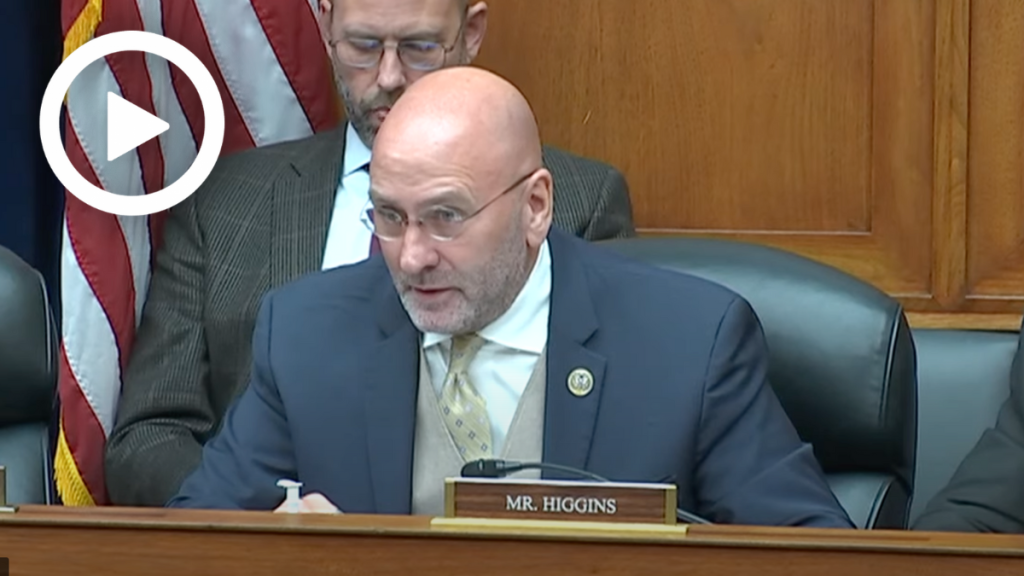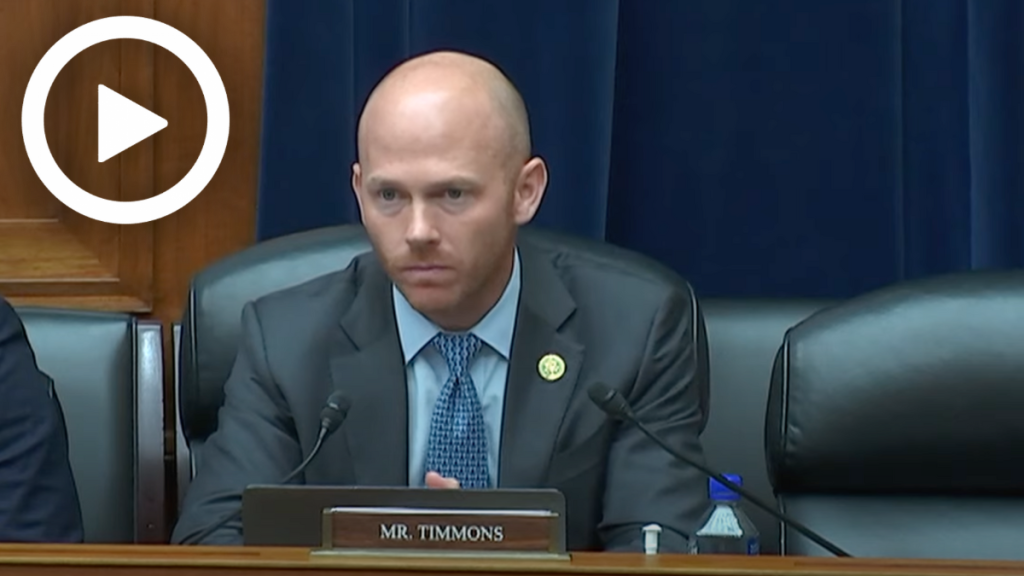Hearing Wrap Up: Federal Agencies Must Be Transparent about Impact of Expanded Telework
WASHINGTON—The Subcommittee on Government Operations and the Federal Workforce held a hearing today titled “Oversight of Federal Agencies’ Post-Pandemic Telework Policies: Part II” to review telework policies at federal agencies and examine how agencies are responding to the Office of Management and Budget’s (OMB) new healthy workplace guidance which called for more “meaningful in-person work.” The agencies at the subcommittee’s first telework hearing made a good faith effort to provide the information the committee requested. The four agencies testifying at this follow-up hearing – the Department of Health and Human Services, the Social Security Administration, the Department of Commerce, and the U.S. Agency for International Development – offered some of the latest and least responsive replies the Committee received.
Key Takeaways:
The Biden Administration declared the expansive telework implemented during the COVID pandemic was a success and attempted to make a sweeping policy change based on this claim. Republican oversight showed they couldn’t back it up.
- It took four months and the threat of compulsory process for the agencies to produce basic information about their use of telework to the Committee.
- Many responses from federal agencies lacked sufficient detail to justify the Administration’s earlier claims about widespread post-pandemic telework.
Oversight Committee Republicans have called on federal agencies to be transparent about the impact of expanded telework on agency mission accomplishment.
- The four agencies testifying at this hearing offered some of the tardiest and least responsive replies to the Committee’s inquiry to 25 government agencies on telework policies.
- During the hearing, all four agencies expressed that they are committed to evaluating their telework policies to find an approach to hybrid work that optimizes the ability for their agencies to meet their missions.
The Office of Management and Budget (OMB) is requiring agencies to formulate plans to better measure productivity, customer service, and the impact of telework. But agency responses call into question how worthwhile these plans will be.
- Bob Leavitt, Deputy Assistant Secretary for Human Resources and Chief Human Capital Officer, U.S. Department of Health and Human Services (HHS) said during his opening testimony, “As we look ahead, we are continually working to optimize our organizational health and organizational performance and we are committed to continuing to increase our meaningful in-office work.”
- During his opening testimony, Oren “Hank” McKnelly, Executive Counselor at the U.S. Social Security Administration (SSA), discussed the administration’s approach to hybrid work. “We continue to evaluate the right mix of hybrid work that provides responsive public service while also aligning the evolution of work and attracting and retaining talented employees.”
- Jeremy Pelter, Deputy Assistant Secretary for Administration, U.S. Department of Commerce (Commerce) said, “The department is committed to thoughtfully and continually evaluating its telework policies in order to inform our strategy of incentivizing and protecting our workforce, on delivering on our mission, and being accountable stewards of federal property and tax dollars.”
Member Highlights:
Rep. Gary Palmer (R-Ala.) asked about how agencies are measuring and addressing productivity and output of employees teleworking.
Rep. Palmer: “One of the main causes for improper payment is that many of your agencies have antiquated data systems. We’re now probably in the range of 300 billion dollars a year – 250 to 300 billion a dollars a year in improper payments.”
“I would like to know have you tracked your agencies’ amount of improper payments particularly in the context of the number of people who aren’t working in the office or are working remotely.”
Mr. Leavitt (HHS): “We do have systems in place to ensure that we are tracking the locality rate of the employees…”
Rep. Palmer: “Have you done anything to measure productivity?”
Mr. Pelter (Commerce): “I wouldn’t use the phrase, sir, internal audit, however I do generally look at three tiers. First, the strategic plan that our secretaries put in place and whether or not we’re meeting those objectives.
Rep. Palmer: “Mr. Chairman, I think we need to get an answer from each of our witnesses as to whether or not productivity has improved, declined, stayed the same.”
Rep. Clay Higgins (R-La.) discussed the impact of remote work on employee engagement and delivering constituent services.
Rep. Higgins: “With teleworking, wouldn’t that human-to-human interaction be interrupted?”
Mr. McKnelly (SSA): “I agree that this is a people business, and that we need to be connected to your constituents and make sure that they get the services they need.
Rep. Higgins: “How do you match what you’re describing with your efficiency and your performance with what we’re seeing in the field back home?”
Mr. McKnelly (SSA): “The principle contributing factors to what we’re experiencing in the field offices is what we saw during the pandemic as well as years and years of understaffing in our field offices.”
Rep. William Timmons (R-S.C.) asked the agencies what safeguards, if any, they have implemented to protect against an increased risk of cyber-attacks and data breaches with remote work.
Rep. Timmons: “What are your agencies doing to prevent similar data breaches and can you point to specific mechanisms to prevent the use of private emails or the sharing of data outside of the network?”
Mr. Pelter (Commerce): “An activity like that would be impermissible and could receive an adverse action of a variety of types whether it was done in the office or from a home work setting.”
Mr. Leavitt (HHS): “From a training perspective the entire workforce is required to understand how to prevent any type of breach of any type of personally identifiable information.”
Ms. Stevens (USAID): “We do hold employees accountable for breaches of conduct like the one that you are describing. That’s agnostic, whether they work at home or are working in the office. We have measures in place to monitor their use of government systems and we take disciplinary action when required.”
Rep. Timmons: “I want to talk about remote working in public places, using public internet. Do you all have policies surrounding that?”
Ms. Leavitt (USAID): “Employees are required to enter into a telework agreement, for example, and in those agreements, we must have the capacity to work in an effective operating environment, whether it’s at home or at another designated location.”
Rep. Timmons: “While SSA pushes people to access services online, my office routinely hears that constituents need access to forms that can only be accessed by going to a local SSA office. What steps is Social Security taking to ensure that seniors are able to access the services they need in person?”
Mr. McKnelly (SSA): “It is a priority for the Social Security Administration to have our field offices manned in a way that can serve your constituents.”
READ MORE: Hearing Wrap Up: Federal Agencies Must Measure Impact of Telework on Agency Performance
CLICK HERE to watch the full hearing.


